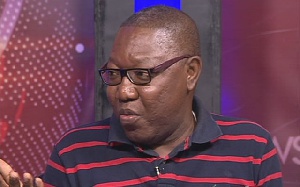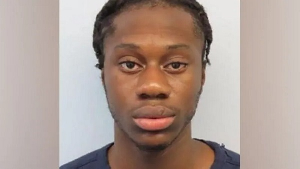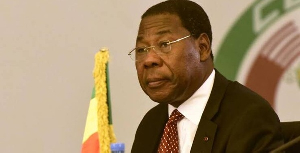The critics who are pummelling the Commission on Human Rights and Administrative Justice (CHRAJ) for clearing President John Mahama in connection with the Ford Expedition saga can go to court if they will, presidential staffer Dr Clement Apaak has said.
Dr Apaak told Prince Minkah on Class91.3FM’s Executive Breakfast Show that a critic like former Second Deputy Speaker of Parliament, Prof Mike Ocquaye, who has questioned the thoroughness of CHRAJ’s investigation, could resort to the court of law if he pleased.
Prof Ocquaye said although CHRAJ’s report exonerates President Mahama of any wrongdoing as far as his acceptance of the SUV gift from Burkinabe contractor Djibril Kanazoe is concerned, there are more questions that need to be answered by the President.
CHRAJ has said not only did its investigation into allegations of bribery, fraud and conflict of interest brought against Mr Mahama in connection with the SUV gift exonerate the President, but also brings closure to the matter.
After close to four months of what CHRAJ describes as extensive investigations, the commission said President Mahama only violated the gift policy regime for public officers.
It is recalled that the Progressive People’s Party (PPP), the Youth Wing of the Convention People’s Party (CPP), and a private citizen petitioned CHRAJ to have Mr Mahama investigated after he received the Ford SUV from the contractor who was in turn awarded government contracts.
But speaking to Emefa Apawu on Class91.3FM’s 505 news programme on Thursday September 29, Prof Ocquaye said: “Definitely from what I see at the moment, there are more questions than answers and I don’t think we are anywhere nearing closure to such a controversial issue. …Was the President called? Was the President asked pertinent questions that he should answer? It is very important in this case how you really interrogate the issue. How did the President come to know this gentleman in the first place?
“The circumstances [under] which you come to know a person are very important. From what I heard about the initial evidence, the introduction was made by this Burkinabe to the then vice president for one single purpose.
The purpose was so that he could win contracts because he tried for so long but was not winning a contract. That was the purpose of the introduction. That purpose should be a matter for serious examination.”
General News of Friday, 30 September 2016
Source: classfmonline.com













